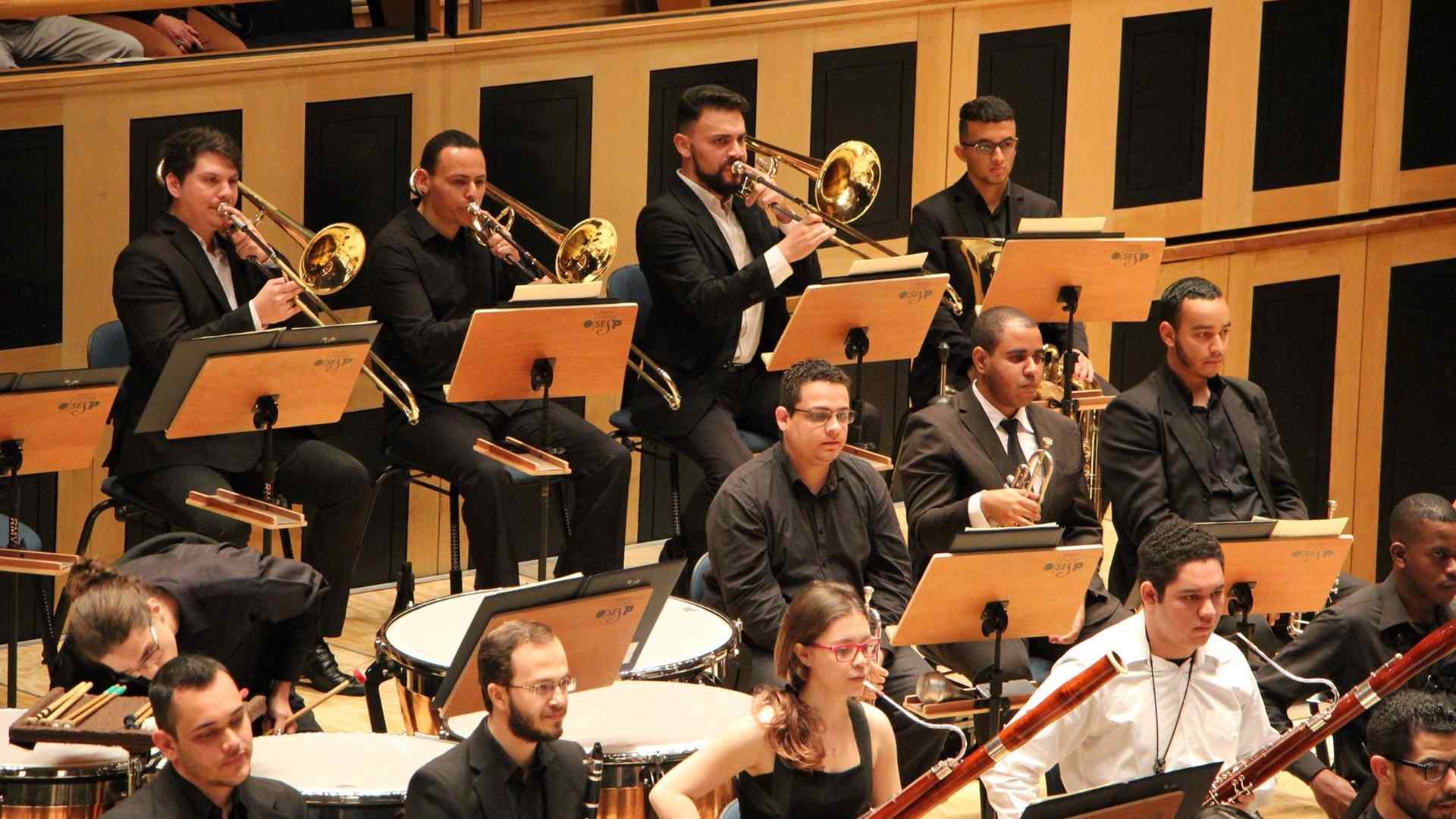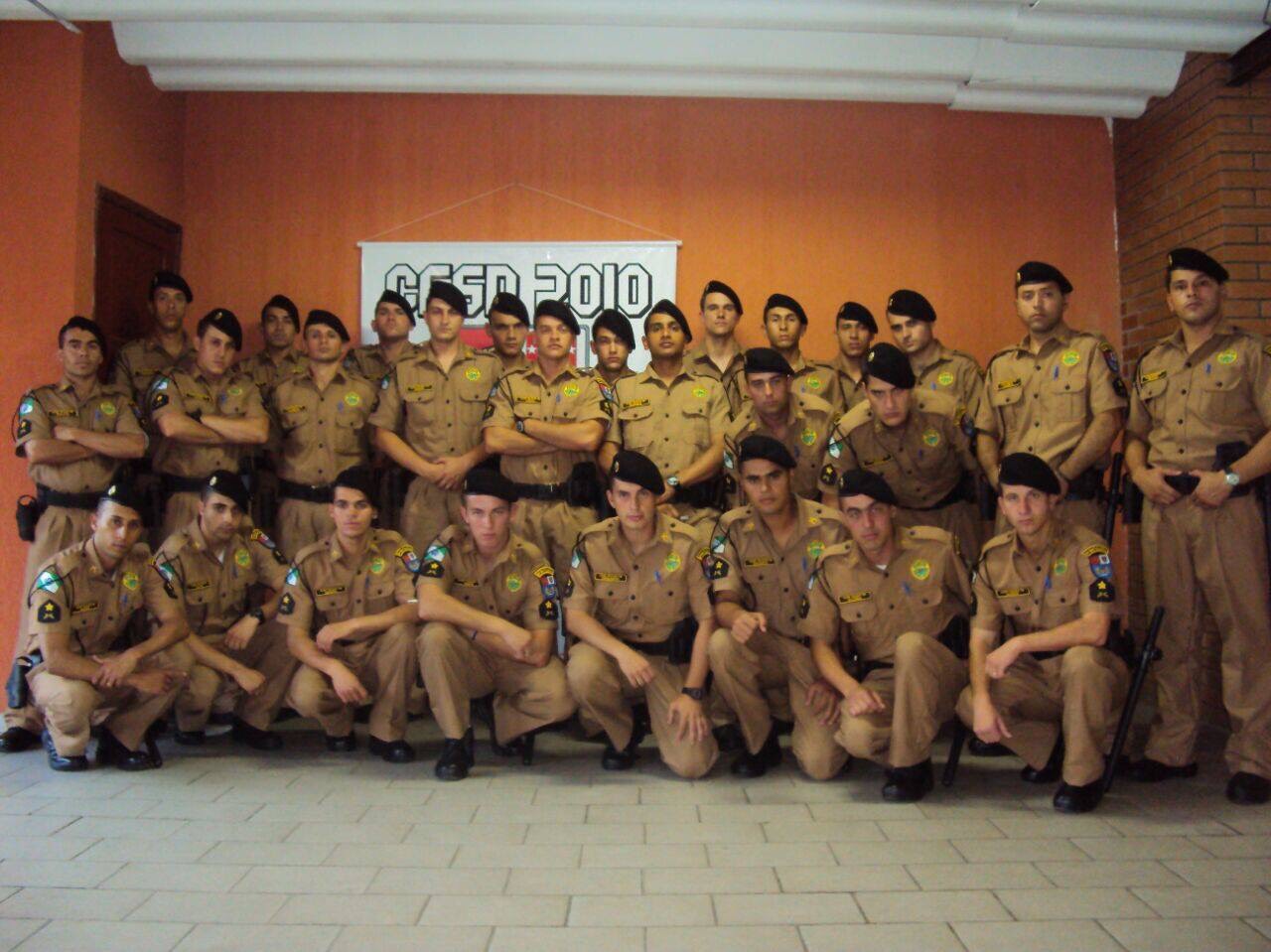
Brazilian trombone Graduate Diploma candidate Filipe Pereira's unique journey to Juilliard included joining the police force so he could keep playing music; now he's won a seat with the Buffalo Philharmonic

How did you begin to play trombone?
My father has been an amateur musician since I was little. He plays valve trombone at the church, and I remember sitting around him while he was playing. I used to try to play some notes on his trombone for fun at home, though never succeeded. Our neighborhood was very violent at the time and my mom worried about my safety and education. She and my father were working during the day which made her think it would be a good idea to enroll me in music classes and keep me busy and away from the streets, which I’m extremely grateful for. Many of my friends ended up on drugs, in jail, or even killed. Although I hated it and didn’t want to go at first, time went by and I learned how to enjoy playing my instrument. I first started on euphonium. My goal was to play the trombone or tuba, but they didn’t have any available at the time. A few months later I was given a trombone to play at the church and I loved it.
I started on a tenor trombone, and a year later I decided I was going to audition for the main music school in my city. I was also playing in a local marching band, and they let me borrow a trombone. Due to administrative problems, they asked the students to leave the band and give back their borrowed instruments. It was a month before my audition and the trombone I had been using at the church was not available anymore. Fortunately, the people in the church community decided to help me and they found a trombone I could use, but it was a bass trombone. I said I was going to keep it only for the audition and then I would try to get a tenor. I played the audition, and my teacher at the time, Silvio Spolaore from Paraná Symphony, told me to keep playing the instrument three more months to see how I would feel. Eventually, I fell in love with the sound of the bass trombone and never stopped.
Because your father also plays the trombone, did that have a large influence on you choosing your instrument?
Absolutely. I was exposed to trombone and brass instruments from a very early age. I believe it had a huge influence on which instrument I chose.

You have such an interesting background. Can you tell us what it was like being a policeman in Brazil?
I started college at Escola de Música e Belas Artes do Paraná (EMPAP) when I was 18, but my family was going through a rough time and I couldn’t afford to go to school. I decided later on to quit music in order to earn money. I worked as a store cashier for a few months and after that as an intern for an automotive metal stamping company for almost two years.
The chance to get back to music came when the police opened their applications. The institution has a band that performs in concerts, parades, and other events. It was a great chance to become an employed musician. However, there was no way to join the band before going through police training and a period of serving on the streets. For about one year I worked in one of the most dangerous areas in my city and faced closely the sad results of drug abuse and violence. After my first year, I was finally transferred to the band and was able to work there for the next five years. The police in Brazil, as in many countries, have both virtues and flaws, but I’m proud to have served my city for a couple of years as a policeman.

Did music influence your day to day as a policeman? Did you ever find connections between the two?
Music was the reason I joined the police, so I always felt like it was strongly connected to my work as a policeman. Moreover, we often had parades in which we would have to march and sing. In these moments, I could see how my previous music studies helped me with rhythm while passing the march and pitch while singing the anthems and military songs.
Also, I believe both a musician and policeman need to be very disciplined, have nerves of steel, be adaptable, be hard-working, and a good team player.
Tell us about your hometown in Brazil. What is one thing we cannot miss when we travel there?
Curitiba is a beautiful city. It is the most sustainable city in Brazil and has many parks and natural beauty. You cannot miss our parks! Barigui and Tanguá are just two examples of amazing natural attractions in Curitiba.
We also have amazing food. Curitiba has a huge culinary tradition and presents the best of Brazilian food and a mix of international restaurants. Our steakhouses are spectacular and Santa Felicidade the neighborhood is known for its wineries, restaurants and chocolate shops.

How was your adjustment to the U.S. and to Juilliard? You were a bit older than other traditional students; did you feel more prepared or was it more difficult?
My adjustment was quite hard. I’ve always been very connected to my family and being away from them was difficult. Gladly, it worked out and I got used to the distance. Speaking a new language and eating the food, quite different from home, were other challenges that I went through in my first semester in the U.S. At Juilliard, I didn’t have problems being older. All my friends and classmates always welcomed me with open arms and I felt very connected and supported all the time. I do believe that being older helped me to manage my schedule and practicing time in a more efficient way. I think the 18-year-old version of myself would not be so organized.
What is your favorite food from home? And do you have a favorite food now that you have lived in New York for a while?
My favorite food is churrasco. Brazil, but more specifically South America, has a huge tradition of churrasco, or grilled steak. Another aspect of food at home is that churrasco and other kinds of traditional dishes are meant to be shared, so food has a social aspect. From NYC my favorites are New York-style cheesecake and pizza.

Where is your favorite place in the city that students must get out of the practice rooms and explore?
We are so fortunate to be just a block away from Central Park. This place is an escape from the busy schedules we have at school. I also love museums and try to see different expositions in the city throughout the year. The Metropolitan Museum of Art is absolutely my favorite.
You just won an audition with the Buffalo Symphony Orchestra! Congrats! Tell us your upcoming plans.
I’m thrilled to have won the audition with the Buffalo Philharmonic. This orchestra has a special place in my heart. I first heard of them when Jonathan Lombardo, principal trombone, and Don Harry, principal tuba, came to Brazil for a festival in Campos do Jordão, São Paulo, back in 2007. I was only 18 and it was the first festival outside of my city I ever participated in. I had a great time and learned a lot from both of them, but after the festival we lost touch. Twelve years later, I will get to perform with them, so I couldn’t be happier. My plans for the upcoming year are to get settled in Buffalo and start a great season with the orchestra. I will also be attending Juilliard for one more year, working with my teacher Blair Bollinger, preparing recitals and working on parallel professional goals.
What has been your favorite performance while at Juilliard?
My favorite performance at Juilliard was in my first year, when the Juilliard Orchestra performed Dvorak’s "New World" Symphony at Carnegie Hall. It was my first time on that stage and it was breathtaking.

If you could give the new international students any advice, what would it be?
Don’t stay way from home for too long—your mom will be mad.
It sounds like you’ve accomplished many of the goals you have previously set for yourself. What are your future goals?
I organize my life based on my goals. Before I came to Juilliard I organized a two-year plan that would bring me here. This plan included learning English and buying a trombone, among many other things. I am glad it worked out. I usually have short- and long-term plans, basically divided by years. For the next year, Buffalo Philharmonic and school are my priorities. For the next three years, I plan on finishing a master's degree. For the next 10 years, I plan on recording an album. I also have many personal goals, but I have learned that life does not go the way we plan most of the time. So I stay flexible and have several possibilities for the same period.
Do you have any other hidden talents?
I once owned a hot dog cart, and I can make some good hot dogs.